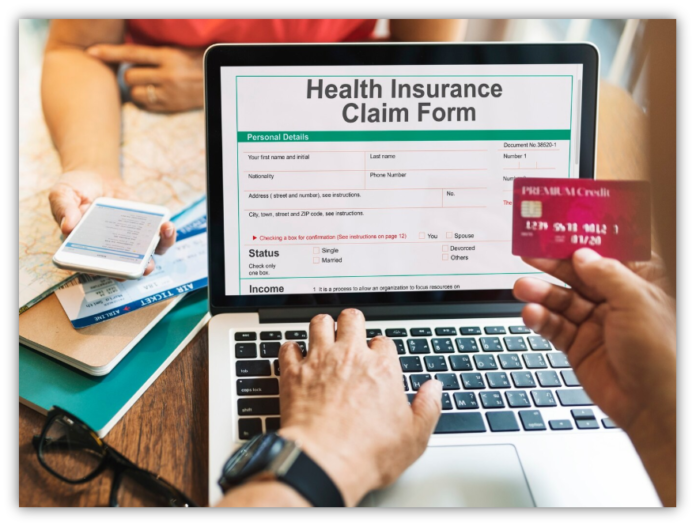In the event of a car accident, the least you want to be concerned with is the payment of your medical expenses. However, after you undergo treatment, you will soon encounter an unforeseen issue: the hospital or physician’s office might request your auto insurance details rather than your health insurance. It may appear to be the correct choice — since the incident occurred in a vehicle — but here’s why you should consistently provide your health insurance details first.
Medical Providers May Prioritize Auto Insurance — But It’s Not Always in Your Best Interest
After an accident, many medical providers prefer to bill your auto insurance policy’s MedPay or Personal Injury Protection (PIP) coverage. Why? Because auto insurance often pays out the full “retail” cost of care, not the discounted rate that health insurance companies negotiate.
But this practice often leads to:
- Slower claim processing
- Higher medical bills
- Delays in treatment
- Out-of-pocket expenses if coverage runs out
Using your health insurance first can help you avoid these pitfalls.
Your Health Insurance Covers You — Even in a Car Accident
Health insurance is intended to cover your medical expenses, regardless of how the injury occurred. Making use of it following a car accident provides you with:
- Lower negotiated rates
- Broader provider access
- Quicker claim approvals
And if you’re concerned about fairness — relax. The driver at fault (along with their insurance) remains legally accountable for all your medical costs, regardless of who pays first.
Avoid Inflated Medical Bills
Hospitals and doctors often charge far more when billing auto insurance — sometimes 2 to 5 times higher than health insurance rates. These inflated bills can drain your MedPay benefits and leave you with unexpected costs.
By giving your health insurance information first, you lock in lower, fairer rates — and your coverage takes effect immediately.
What About Reimbursement?
A common worry for many individuals is if they will need to reimburse their health insurance after obtaining a settlement. The solution? At times — though it’s manageable, particularly with legal assistance.
In states like Virginia, anti-subrogation laws protect many patients from having to repay their private health insurance. Even when repayment is required (like with Medicare or ERISA plans), it’s usually just a portion of your settlement — and it’s often negotiable.
Presenting Health Insurance Helps You and Your Case
Here’s what happens when you give your health insurance after an accident:
- You get faster, more affordable care
- You avoid out-of-pocket surprises
- You protect your settlementby reducing how much is claimed by providers
- You keep the focus on your recovery.
Meanwhile, the at-fault driver remains on the hook for your total damages — including the full value of your medical care, lost wages, and pain and suffering.
Consult with the Experienced Attorneys
(C. James Williams III and Kimberly J. Raab)
Jim Williams graduated from summa cum laude from George Mason University School of Law and served as a law clerk for Judge Glen M. Williams. He then worked at Gentry, Locke, Rakes, and Moore, followed by Morris & Morris, before becoming litigation counsel for Progressive Insurance. He acquired substantial experience as a trial lawyer, providing him with comprehensive knowledge of the intricacies of Virginia insurance law and insight into the defence’s approach to litigation.
Kim completed a specialized program for her Bachelor of Arts and Juris Doctorate in six years. She practices law in the Supreme Court of Virginia, the U.S. District Court for the Eastern District of Virginia, and New York. Focusing on personal injury, she values client satisfaction, integrity, and legal adherence.

Bottom Line: Always Lead With Your Health Insurance
Even if a hospital insists on your auto insurance info first, don’t hesitate to give them your health insurance card. It’s your legal right, and it often leads to the best outcome — both medically and financially.
If you’re unsure how to navigate this or if a provider refuses to accept your health insurance after a crash, speak with a personal injury attorney. At Burnett & Williams, we help injured Virginians protect their health and their financial future — every step of the way.
Contact Us Today
Don’t let misleading promises or internet myths cost you time or money. Call Burnett & Williams, P.C. today and get the honest legal help you deserve.s
Call (804)-794-0080 for a FREE consultation
Visit us in Richmond or Chesterfield
Contact us online at www.burnettwilliams.com
By Attorneys Charles James Williams III & Kimberly Raab
Experienced Personal Injury Lawyers Committed to Richmond & Chesterfield Communities.

